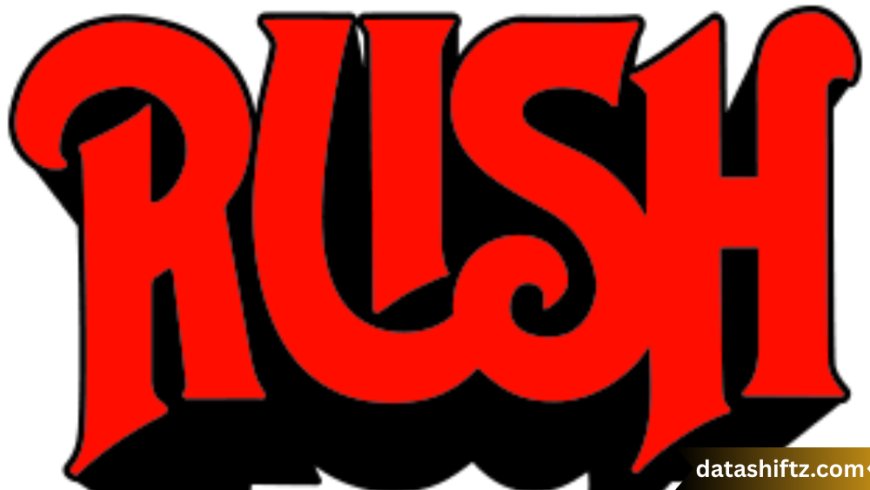Rush: The Drive Behind Human Momentum and Speed

Introduction
The word “rush” carries a wealth of meaning across various domains of human life—from high-speed actions and emotional surges to adrenaline-pumping adventures and pressure-driven tasks. Whether you're caught in the morning commute rush, chasing deadlines, or experiencing an adrenaline rush, the concept connects deeply with urgency, speed, and excitement.
In today’s fast-paced world, the idea of a “rush” influences how we work, play, feel, and live. This comprehensive article explores the term from different perspectives: psychological, cultural, physiological, and social. We’ll break down what causes a rush, when it helps or hinders us, and how to manage life in the fast lane.
Understanding the Concept of Rush
What Does “Rush” Really Mean?
The term "rush" can be both a noun and a verb, depending on its usage. It implies movement at high speed, sudden emotion, or urgency, depending on the context.
Common Meanings of “Rush”
| Usage Type | Definition | Example |
|---|---|---|
| Physical | Moving quickly toward a destination | “He rushed to catch the train.” |
| Emotional | A sudden burst of feeling | “She felt a rush of joy.” |
| Physiological | A chemical high from adrenaline or endorphins | “An adrenaline rush during skydiving.” |
| Social | A peak period of activity or urgency | “The lunch rush at the café.” |
The Science of the Rush
What Happens in Your Brain and Body?
When you experience a rush, particularly one tied to emotions or action, your body goes through a series of physiological responses triggered by the brain.
Key Chemicals Involved in a Rush
| Neurochemical | Effect on the Body | Common Scenarios |
|---|---|---|
| Adrenaline | Heightens alertness, heart rate, and energy | Emergencies, extreme sports |
| Dopamine | Triggers pleasure and reward | Winning a game, achieving a goal |
| Endorphins | Reduces pain, increases happiness | Exercise, laughter |
| Cortisol | Related to stress; preps body for fight or flight | Work deadlines, high-stress tasks |
These chemicals work together to create what we call an “emotional high” or rush, which can be both thrilling and exhausting.
Types of Rushes in Everyday Life
1. The Morning Rush
From setting alarms to skipping breakfast, many people face the morning rush as they scramble to start their day. While it’s a familiar routine, rushing through mornings may increase stress and reduce productivity.
2. Adrenaline Rush
This occurs in high-pressure or high-risk situations. Activities like skydiving, bungee jumping, or public speaking can induce an adrenaline rush, enhancing focus and physical performance—at least temporarily.
3. Emotional Rush
Love, anger, excitement, or fear—strong feelings can trigger an emotional rush that floods the brain with hormones, impacting behavior and memory.
4. Work or Deadline Rush
Tight schedules and last-minute crunches lead to deadline rushes. While it may boost short-term productivity, it can harm long-term performance and mental health if sustained.
Signs You’re in a Constant Rush
-
You eat, walk, or talk too quickly.
-
You skip tasks or make frequent mistakes.
-
You feel impatient even during small delays.
-
You multitask constantly without focus.
-
You sacrifice sleep to “get things done.”
-
You feel burnout or anxiety regularly.
Rush in Pop Culture and Entertainment
Rush in Music and Film
The term “rush” is widely used in pop culture to signify excitement, danger, or speed.
Examples from Entertainment
-
???? Rush (Band) – A legendary Canadian rock band known for complex lyrics and sound.
-
???? Rush (2013 Film) – A biographical sports drama about Formula One drivers Niki Lauda and James Hunt.
-
???? Rush Hour – An action-comedy franchise featuring high-paced scenes and witty dialogue.
Rush in Sports
From the two-minute drill in American football to a fast break in basketball, the term "rush" denotes quick execution under pressure.
When the Rush Becomes Dangerous
The Downside of Always Rushing
While feeling a rush can be exhilarating, living in a constant state of urgency can have negative consequences.
| Risk Factor | Description |
|---|---|
| Burnout | Emotional and physical exhaustion from prolonged stress |
| Poor Decision-Making | Rushed choices lack clarity and foresight |
| Health Problems | Chronic stress can lead to heart issues, insomnia, etc. |
| Weakened Relationships | Constant rushing can damage personal connections |
How to Manage and Control the Rush
1. Mindfulness and Breathing
Practicing mindfulness slows down your thoughts and brings focus to the present moment. Deep breathing techniques can help regulate your nervous system and reduce adrenaline surges.
2. Time Management
Plan your day with:
-
Prioritized to-do lists
-
Time blocking techniques
-
Scheduled breaks
3. Healthy Lifestyle Choices
| Habit | Benefit |
|---|---|
| Regular Exercise | Balances adrenaline and endorphin levels |
| Sleep Hygiene | Reduces cortisol and improves recovery |
| Nutritious Diet | Keeps blood sugar stable and energy steady |
Activities That Offer a Healthy Rush
-
Running or Cycling – Triggers runner's high and clarity.
-
Playing Music or Singing – Creative outlet for dopamine.
-
Rock Climbing or Surfing – Combines danger and control.
-
Public Speaking – Builds confidence with emotional intensity.
-
Dancing – Engages body and emotions simultaneously.
-
Volunteering – Provides emotional gratification and purpose.
Rush in Technology and Digital Life
Speed vs. Quality
We live in a digital age where everything is expected to happen instantly—fast downloads, same-day delivery, 24/7 responses. But this digital rush can lead to:
-
Decreased patience
-
Addiction to speed
-
Reduced attention spans
The Philosophy Behind the Rush
Is Slower Always Better?
Not necessarily. The key is finding a balance between momentum and mindfulness. Speed can create opportunities, but it should be intentional, not reactive.
Eastern vs. Western Perspectives
| Culture | View of Time and Rush |
|---|---|
| Western | Time is linear and must be optimized |
| Eastern | Time is cyclical and patience is a virtue |
Conclusion
“Rush” is more than a four-letter word—it’s a powerful force that drives much of human behavior. Whether it's the thrill of a moment, the pressure of a deadline, or the emotional high of success, the rush can push us forward or wear us down.
To live a fulfilling life in a fast-moving world, it’s essential to understand your personal rhythm. Recognize when to embrace the rush for productivity and performance—and when to pause, breathe, and slow down.
You don’t need to live life always in the fast lane. Sometimes, the real joy comes when you step off the gas and enjoy the view.






























